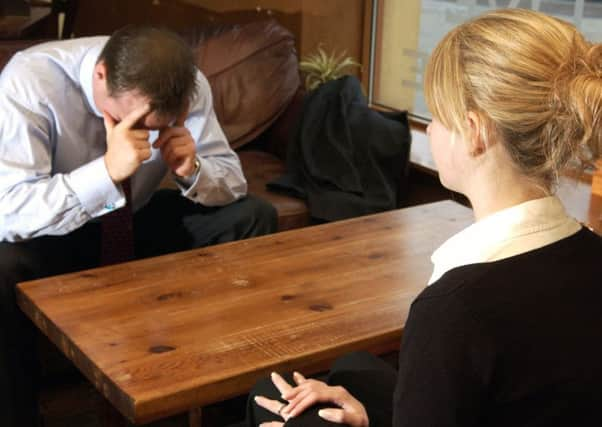Anne Chilton: Change is inevitable, but how we deal with it is the most important thing


Change can be slow or rapid, planned for or sudden, with all whistles and bells clanging in a noisy, attention grabbing cabaret or stealthily, in the shadows, hardly causing the net curtains to flutter.
The irony is that change will happen regardless of what we may want or plan. It is the only constant, reliable thing we can say for sure will happen.
Advertisement
Hide AdAdvertisement
Hide AdYet, funnily enough, it’s the one thing we are not really taught about. We maybe know the rudimentaries of being in a relationship, having a baby, driving a car, leaving home for the first time or buying a house, all of which involve change. Do we really educate ourselves on how we will experience those changes?
We don’t usually delve into the intricacies of what change means or acquaint ourselves with how it works and affects us – usually we just want things to feel OK.
We are often little prepared for the unsettling sensations and feelings, when our head says it’s all going to be alright and our guts don’t agree. It can all feel a wee bit shoogly.
Working with people in relationships inevitably brings up issues around dealing with the impacts of change, be that for those wanting things to be different and to overcome the difficulties they are experiencing, or those who want to move on to new relationships.
The interesting thing about the impact of change is that it does not really matter whether the change has been chosen, is seen a good change, or that it’s been done to us and we see it as wholly negative.
Whilst the change may well involve practical things being different, either way we will experience it emotionally and sometimes those feelings and emotions can leave us feeling a bit bewildered and confused.
To change means to do things differently and that means we have to let go of what was in order to make space for whatever the desired change is. This basically involves taking a risk. The old adage of a bird in the hand being worth two in the bush can ring loud.
Staying with the certainty of what we have, especially in relationship terms, can outweigh any possible gains there might be if we change. Why? Well, often we can assume that even if the relationship we are in is not going well, a change might well make it worse.
Advertisement
Hide AdAdvertisement
Hide AdOr, if we speak and voice our concerns, maybe that we are unhappy or that we want a bit more from the relationship, then our partner might say they feel the same and it’s over. So, it all becomes a bit risky and many people conclude that it is best to not say anything at all.
Change is unsettling; we can feel upset and we may be tearful and sad about what has gone, longing to go back to how things were.
We can feel angry and out of sorts, anxious about how things will end up, and we might berate ourselves for having been foolhardy in making a move that we now regret.
We can feel down and fed up, even depressed about what we no longer have, and we can also feel hopeful for the future and be making plans for that new life.
The confusing thing is we can feel all these things at the same time. Upset, elated, hopeful and down, all about this thing called change. What we need to hold on to though is that this is absolutely normal.
We have to feel the pull of the good things we hope for in the future and the sadness of what’s being left behind. This is the very heart of the process we call change.
Our thoughts and feelings work in different time frames to the external world and sometimes it can take a bit of reorganising to realign ourselves internally.
Understand that it takes time to sort out our thoughts and repackage them to fit more comfortably into our new way of being.
Advertisement
Hide AdAdvertisement
Hide AdSo, if you fancy a bit of a change in your relationships, just keep in mind that you may well feel a bit out of sorts for a while and that you need to give yourself time to allow your inner world to sort itself out. Allow the shoogly to settle.
Relationships Scotland provides counselling, mediation and child contact centres across the country.
Further details can be found at www.relationships-scotland.org.uk
Anne Chilton, head of professional practice for counselling, Relationships Scotland.